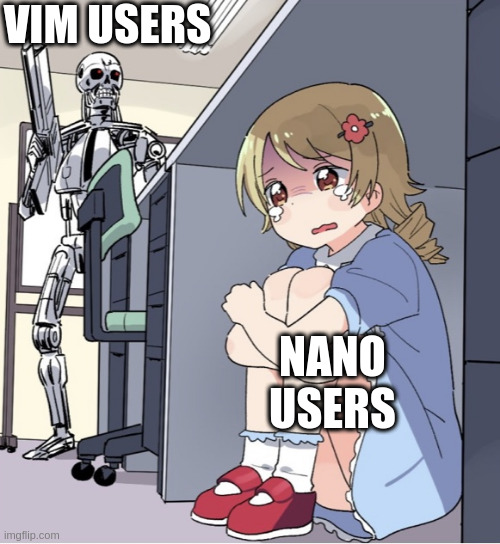this post was submitted on 02 Sep 2024
783 points (93.4% liked)
Linux
50737 readers
845 users here now
From Wikipedia, the free encyclopedia
Linux is a family of open source Unix-like operating systems based on the Linux kernel, an operating system kernel first released on September 17, 1991 by Linus Torvalds. Linux is typically packaged in a Linux distribution (or distro for short).
Distributions include the Linux kernel and supporting system software and libraries, many of which are provided by the GNU Project. Many Linux distributions use the word "Linux" in their name, but the Free Software Foundation uses the name GNU/Linux to emphasize the importance of GNU software, causing some controversy.
Rules
- Posts must be relevant to operating systems running the Linux kernel. GNU/Linux or otherwise.
- No misinformation
- No NSFW content
- No hate speech, bigotry, etc
Related Communities
Community icon by Alpár-Etele Méder, licensed under CC BY 3.0
founded 5 years ago
MODERATORS
you are viewing a single comment's thread
view the rest of the comments
view the rest of the comments

In a professional context, you might end up on servers that don't have nano installed, but do have vi. Or if you're helping out a friend on their laptop, they might not have the same software as you. Or if you often end up tinkering with random devices and/or setting up new systems it might be tedious to install the same applications every time.
It's basically an argument for learning the very basics of the most common editors so you have flexibility no matter where you end up. Even when you have the ability to download and install your preferred software, it's still an extra step that might not be desirable for a variety of reasons. But if it's just your own personal device, I see no problem with just installing whatever you prefer and running with it.
EDIT: Personally, I find that I don't end up using those other editors often enough to remember the abstruse commands of tools like vim, so I'm not worried about it. When it does happen, 99% of the time I can just whip out a smartphone and look up the directions for the n-dozenth time.